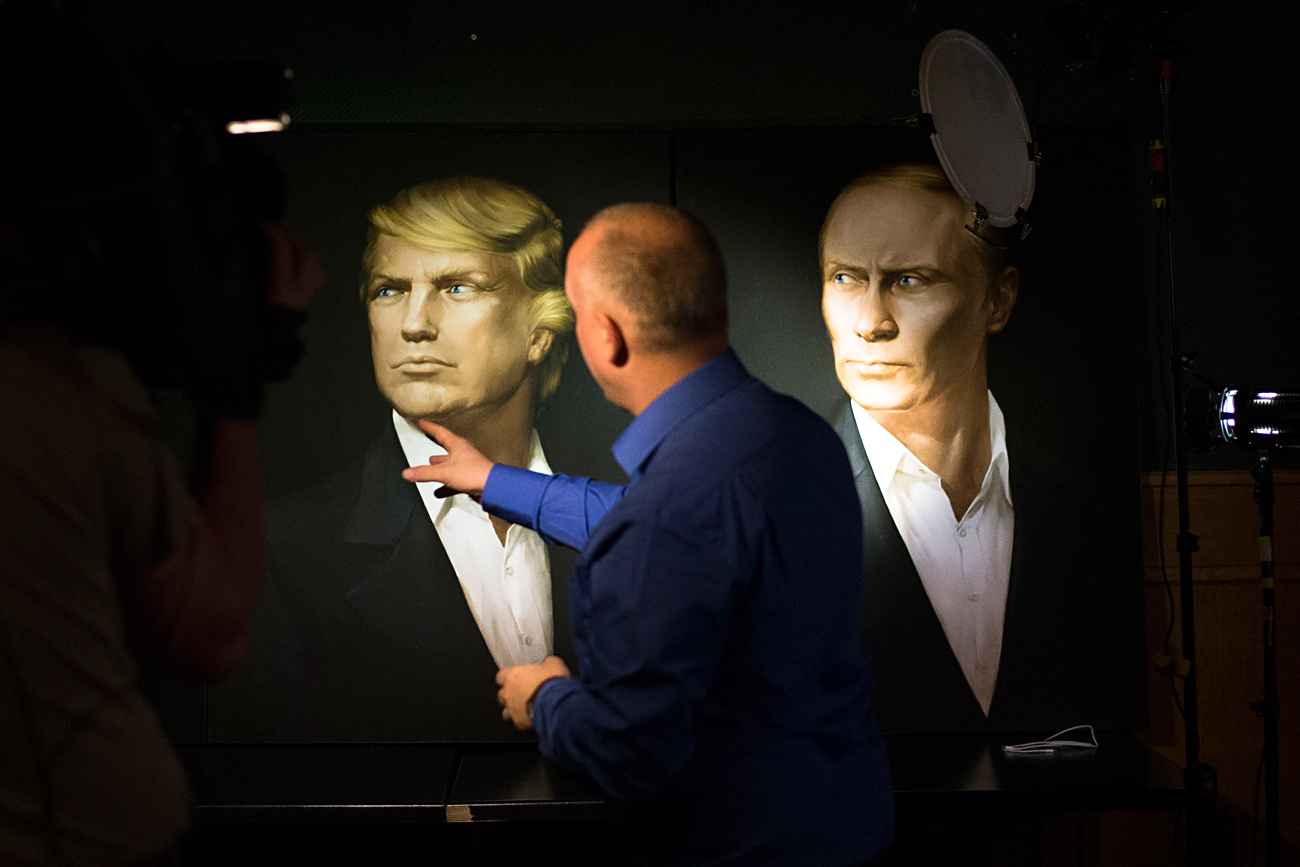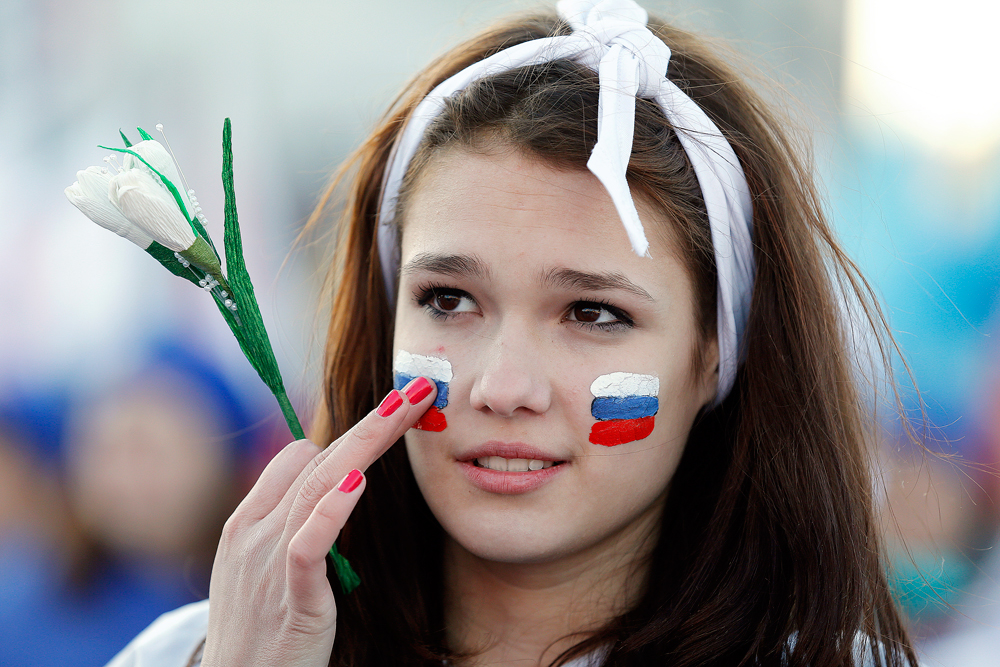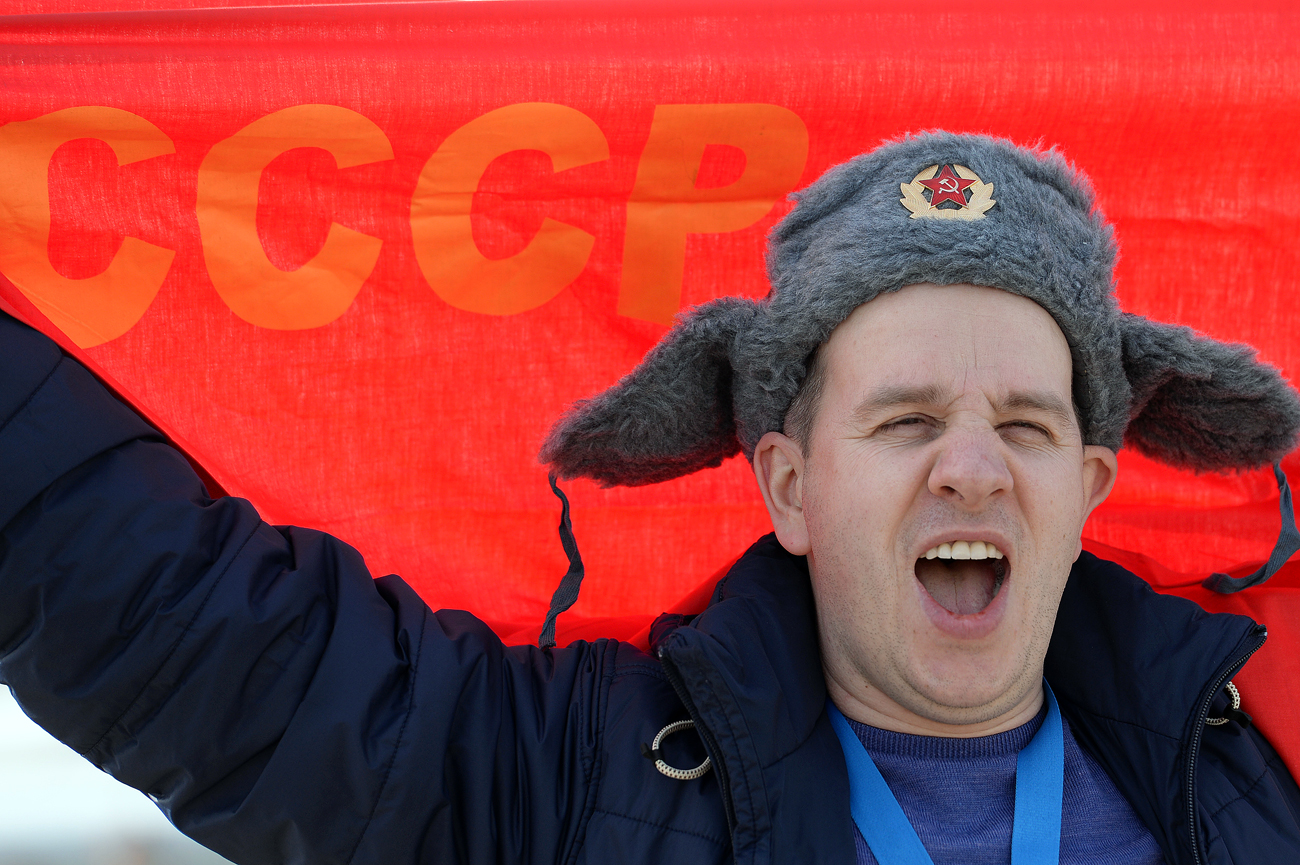Survey: Now Russians want to be friends with the West again

A journalist points at a portrait of U.S. President-elect Donald Trump, with a portrait of Russian President Vladimir Putin during a live telecast of the U.S. presidential election in the Union Jack pub in Moscow, Russia.
APThe number of Russians interested in improving relations with Western countries has approached a historic maximum, reports the RBK daily, citing a survey carried out by the Levada Center for Sociological Studies, an independent pollster.
According to the survey, which was carried out from Nov. 18-20 and polled 1,600 Russians over the age of 18 in cities and villages, 71 percent of people surveyed want political, cultural and economic ties with Western countries to be expanded. This is close to the 2000 historic maximum. Back then 76 percent of Russians supported rapprochement with the West.
The fall of anti-Americanism and negativity in relations with the EU
The desire for reconciliation with the Western countries is concurrent with the decline in negative attitudes towards the U.S. and the EU. According to the survey, 54 percent of Russians have negative views of the EU and 56 percent are negatively inclined towards the U.S., which is eight percent lower in comparison to two months ago.
The Levada Center survey showed that the growth of skepticism in relation to the development of ties with Western countries began in November 2014. Back then less than 60 percent of those surveyed favored the development of ties with Western countries. The absolute minimum was observed in July 2015, when only 50 percent favored expanding ties with the West and 37 percent wanted ties to be reduced (the rest were undecided).
Trump – a friend of Russia
The positive shift in Russians' perception of the U.S. and the EU is related to Russia's increased openness towards allied relations with the West and the softening of Russian state media's anti-Western rhetoric," explained political analyst Mikhail Komin.
He believes that Donald Trump's win in the U.S. presidential elections, the victory of European candidates such as Igor Dodon in Moldova, Filon's triumph at the Republican primaries in France and many other factors have helped reduce the anti-Western rhetoric.
"The Russian mass media actively circulates these politicians' pro-Russian views, which obviously conditions the simple layman's perception of the Western countries," said Komin.
Russian State Duma parliamentarians welcomed the news of Trump's victory with applause and leader of the nationalistic Liberal Democratic Party of Russia Vladimir Zhirinovsky even organized a banquet in honor of the U.S. president-elect.
Margarita Simonyan, editor-in-chief of the state-owned English-language TV channel RT, wrote on her Twitter feed: "Today I want to drive through Moscow with an American flag in my car window. If I find the flag. Join me. They deserve it today."
According to the Levada Center survey, more than half of Russians expect Russian-American relations to improve now that Trump has been elected president.
Tired of enemies
Another factor that is responsible for reducing anti-Western sentiments among Russians is that they are tired of searching for enemies.
"It is difficult to constantly live in a circle of enemies, waiting to be hit. That is why most people indeed want relations with Western countries to improve, they want increased predictability and the removal of tensions," said Komin.
At the same time he remarks that in the Russian consciousness the idea of the West as Russia's long-term opponent remains: "In Russians' minds an alliance with the West is the lesser of all evils, a 'forced smile,' one in which, looking your foe in the face, it is better to smile but still be on your guard."
Read more: Russia’s U.S. election fever: Society reacts to Trump’s shock victory>>>
Subscribe to get the hand picked best stories every week
All rights reserved by Rossiyskaya Gazeta.
Subscribe
to our newsletter!
Get the week's best stories straight to your inbox

